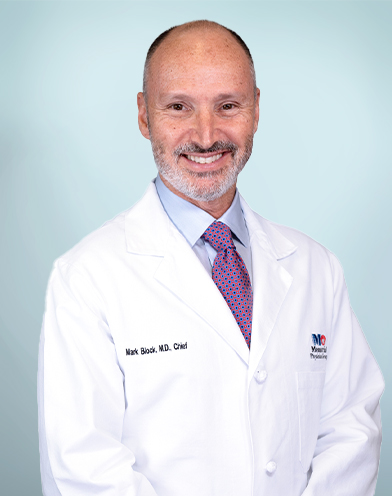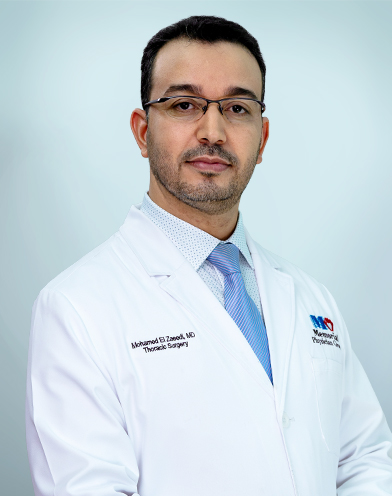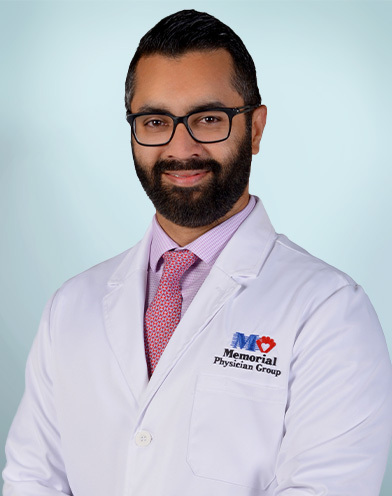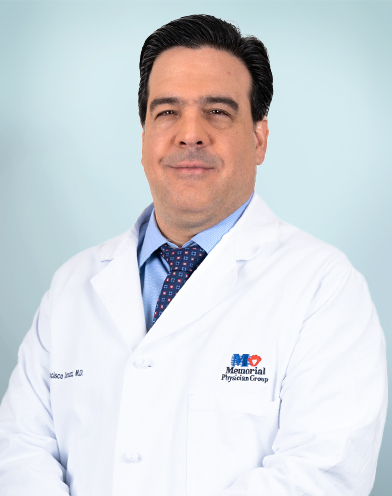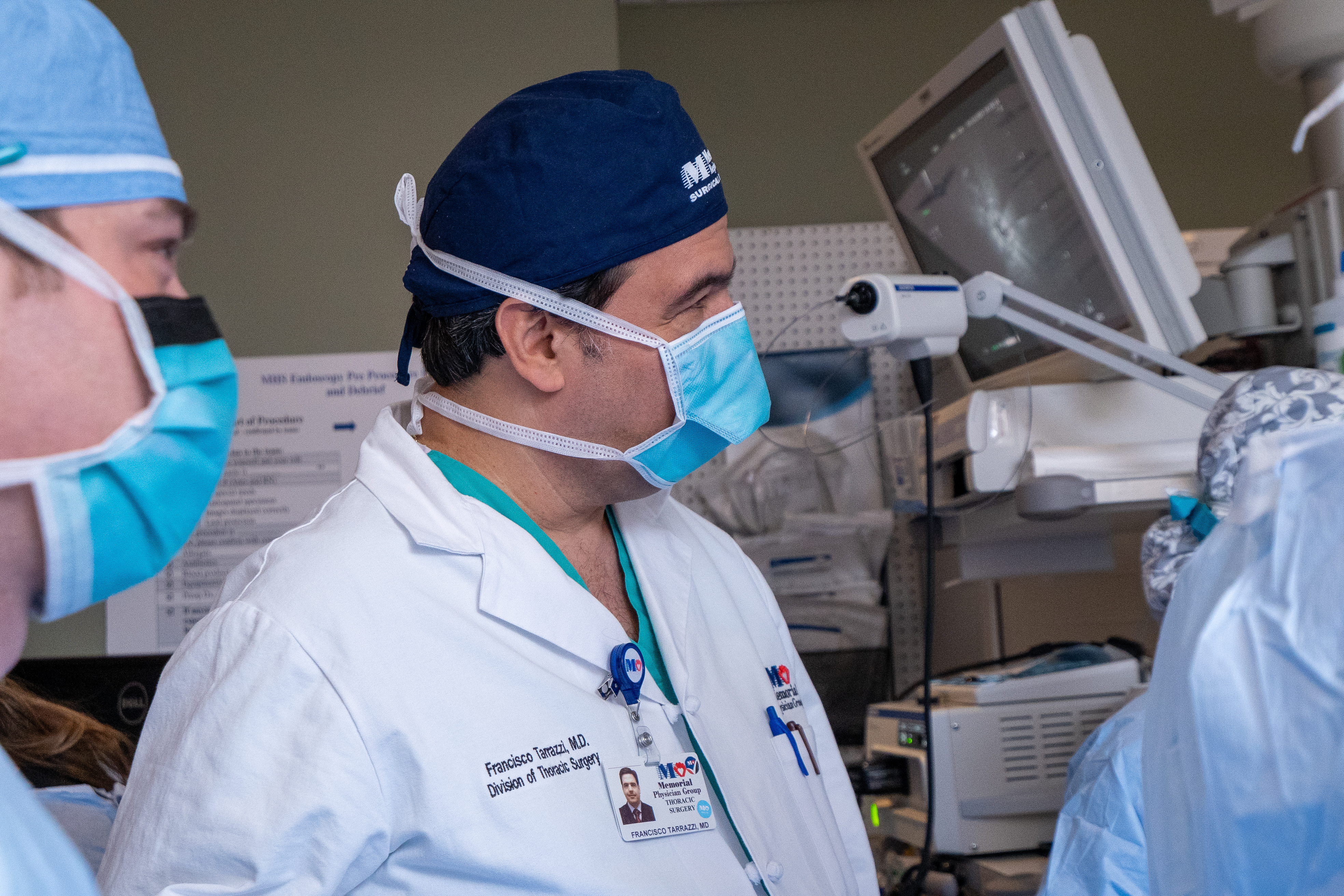
Esophageal Diagnosis and Treatment
Our thoracic surgeons offer advanced procedures to improve your quality of life.
Memorial Healthcare System’s thoracic surgeons are specially trained and certified to diagnose and treat esophageal conditions. We offer several procedures to remove diseased tissue and relieve your symptoms.
Call to schedule an appointment with one of our thoracic surgeons:
954-265-1125Esophageal Disorders Care: Why Choose Memorial Healthcare System?
When you come to Memorial for care of an esophageal disorder, you’ll find:
- Expert team: Our board-certified thoracic surgeons have specialized training and experience in esophageal disease. We diagnose and treat patients with simple to complex problems in the esophagus.
- Prompt and accurate diagnosis: Earlier treatment is more effective against some forms of esophageal disease. We see you quickly and perform advanced diagnostic testing. This means you can get a diagnosis, start treatment and relieve symptoms as soon as possible.
- Multiple surgical options: We offer the latest surgical treatments, including options not available elsewhere. If you need surgery, our doctors perform procedures to repair or open the esophagus or to remove diseased tissue. We recommend minimally invasive techniques, including advanced endoscopic procedures, whenever possible to reduce pain and expedite recovery.
- Comprehensive treatment: At Memorial, you have access to a variety of supportive services that help relieve symptoms and improve your health. Services include a special type of therapy that helps you swallow and speak, as well as nutritionists who can help you feel better through diet. Your team also may include integrative medicine experts, sleep therapists, palliative care, support groups, social workers, and pharmacists specializing in thoracic conditions.
- Multispecialty care: People with esophageal conditions sometimes need support from other medical specialists. We work closely with experts throughout the Memorial system to ensure you receive high-quality, effective, whole-person care. Your team might include gastroenterologists; radiologists; ear, nose and throat (ENT) physicians; and other specialists.
Esophageal Tests We Offer
Esophageal disorders can interfere with your ability to enjoy life and may result in serious health problems. Many of these conditions are misdiagnosed or diagnosed late, affecting your quality of life. Accurate and early assessment and treatment are essential.
Our team listens closely to understand your symptoms and their impact on your life. We ask detailed questions to explore the reasons for your symptoms and understand your overall health.These tests are used to diagnose a wide variety of esophageal disorders, including gastroesophageal reflux disease (GERD), hiatal hernia, achalasia and cancer. We conduct the tests at our fully equipped on-site endoscopy suite, so you don’t have to travel for various appointments.
We offer the following advanced methods to diagnose the cause of swallowing problems:
This imaging test helps us see how a special liquid travels through your esophagus. It’s helpful for understanding the structure of the esophagus and whether there are any irregularities, such as narrowing.
This test measures how often and how much stomach acid shows up in your esophagus. This condition is called reflux, because the acid “refluxes” from the stomach back up into the esophagus. We perform endoscopy to inspect the esophagus for any signs of injury, evaluate for a hiatal hernia and implant a specialized capsule called a Bravo.
The Bravo capsule measures the acid level in the esophagus and transmits the information to a recorder you wear at your waist. The recording stops after 48 hours. The capsule falls off the wall of the esophagus and passes through the bowels to be eliminated.
This test measures how well the muscles in your esophagus work when you swallow. Our specially trained nurses insert a thin, flexible tube (catheter) through your nose. While you swallow, the catheter assesses the pressure of esophageal muscle contractions and movement of food and liquid.
This long, thin tube with a light and camera can explore the upper part of your digestive system. We use the procedure to find problematic tissue in the esophagus lining and sometimes to take a small sample (biopsy).
Esophageal Treatments
Memorial offers a range of effective procedures, including several that aren’t available elsewhere in our region.
Our surgical options for esophageal disorders include:
We can place a stent or balloon in your esophagus to widen a narrowed area. This minimally invasive procedure treats esophageal strictures and can be repeated over time.
This complex surgery removes part of the esophagus (and sometimes the stomach), then reconstructs it. It’s used to treat or cure achalasia and esophageal cancer.
We may suggest open surgery or a minimally invasive option through keyhole-sized incisions, depending on your needs.
Also known as antireflux surgery, this minimally invasive procedure can eliminate GERD. Your surgeon wraps the upper part of your stomach around your lower esophagus. We can often do this in a minimally invasive way.
To repair a hiatal hernia, your surgeon makes a few small incisions in your belly. Then we bring down the part of the stomach that has moved through your diaphragm.
We may combine this surgery with a reflux surgery, such as fundoplication or implantation of a LINX device.
Our surgeons can implant a LINX device containing small magnets to reinforce a weakened portion of the esophagus called the sphincter. The surgery is minimally invasive, and the device is permanent.
Esophageal myotomy involves making small cuts to esophageal muscle tissues to loosen them. We use the minimally invasive procedure to remove diverticula and correct achalasia. We offer several types of myotomy, depending on your needs. Peroral endoscopic myotomy (POEM) is done with an endoscope (a tube through your mouth), so there are no incisions. Heller myotomy uses small incisions to access the esophagus.
This surgery removes cysts, benign tumors like esophageal fibroids, and cancerous tissue. We design a surgical approach based on your needs.
Some procedures can be performed using robotic-assisted or video-assisted thoracoscopic surgery (VATS). These approaches have several benefits:
- Faster recovery time and return to everyday activities
- Fewer and smaller incisions, which means less scarring and lower risk of infection
- Less pain
- Less blood loss
- Shorter hospitalization
Call to schedule an appointment with one of our thoracic surgeons:
954-265-1125It matters to you. It matters to us.
Quality and Safety Data for Memorial Healthcare System
Our goal is to provide our patients with the information they need to make informed choices for themselves and their families.
View Quality and SafetyYou have a Right to Know About Prices
We want to give you the information you need to make important healthcare decisions, including the costs of our services.
View PricingMyChart Portal
View test results, schedule follow-up appointments, request prescription refills and more.
Login or Sign-up to MyChart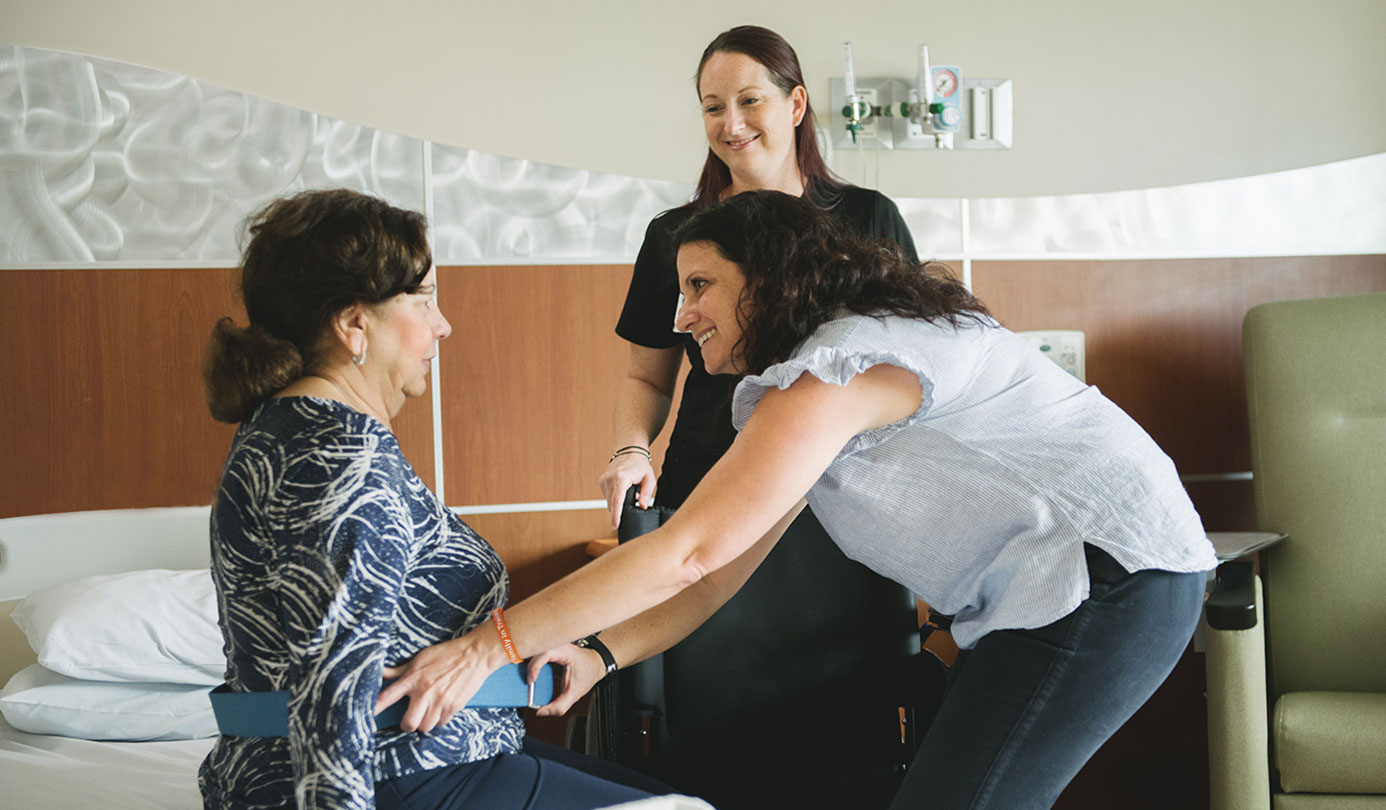
Patient and Family Centered Care
We treat patients and family members as partners in healthcare.



